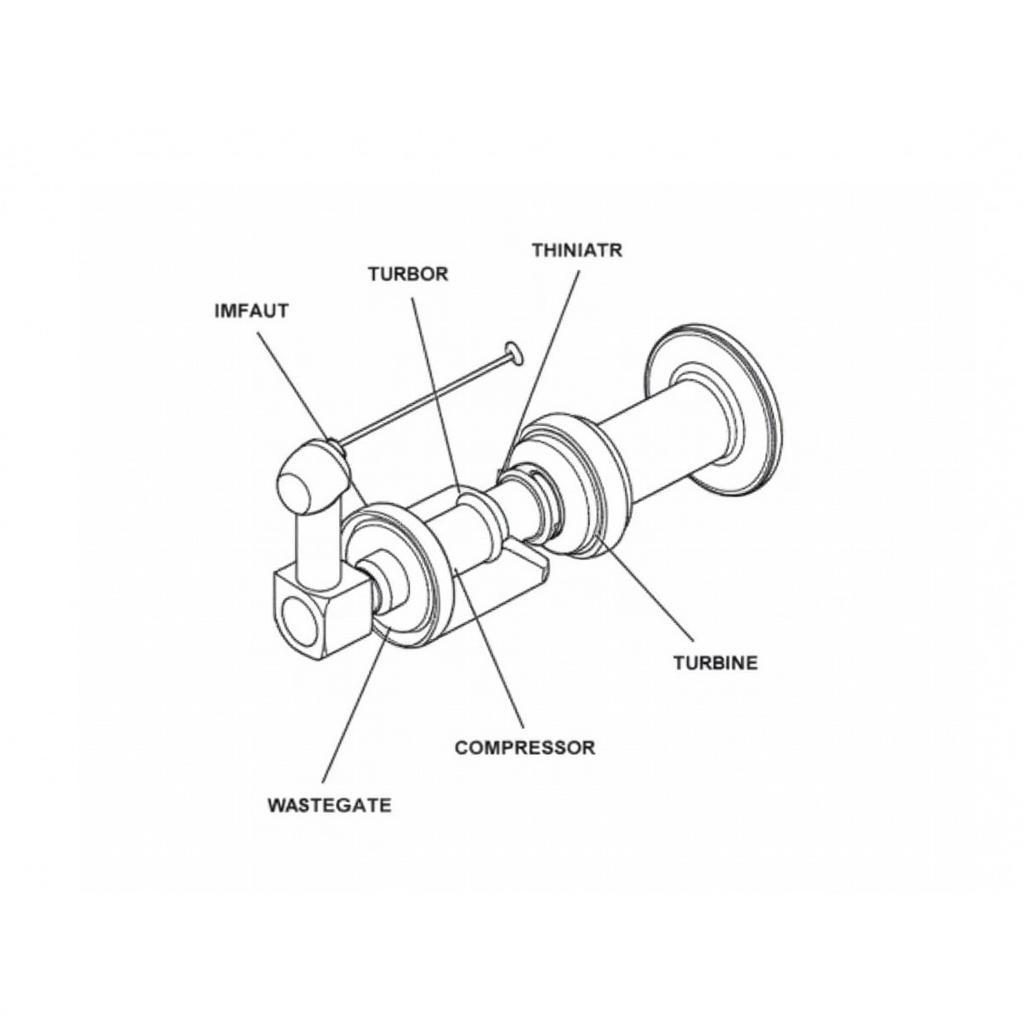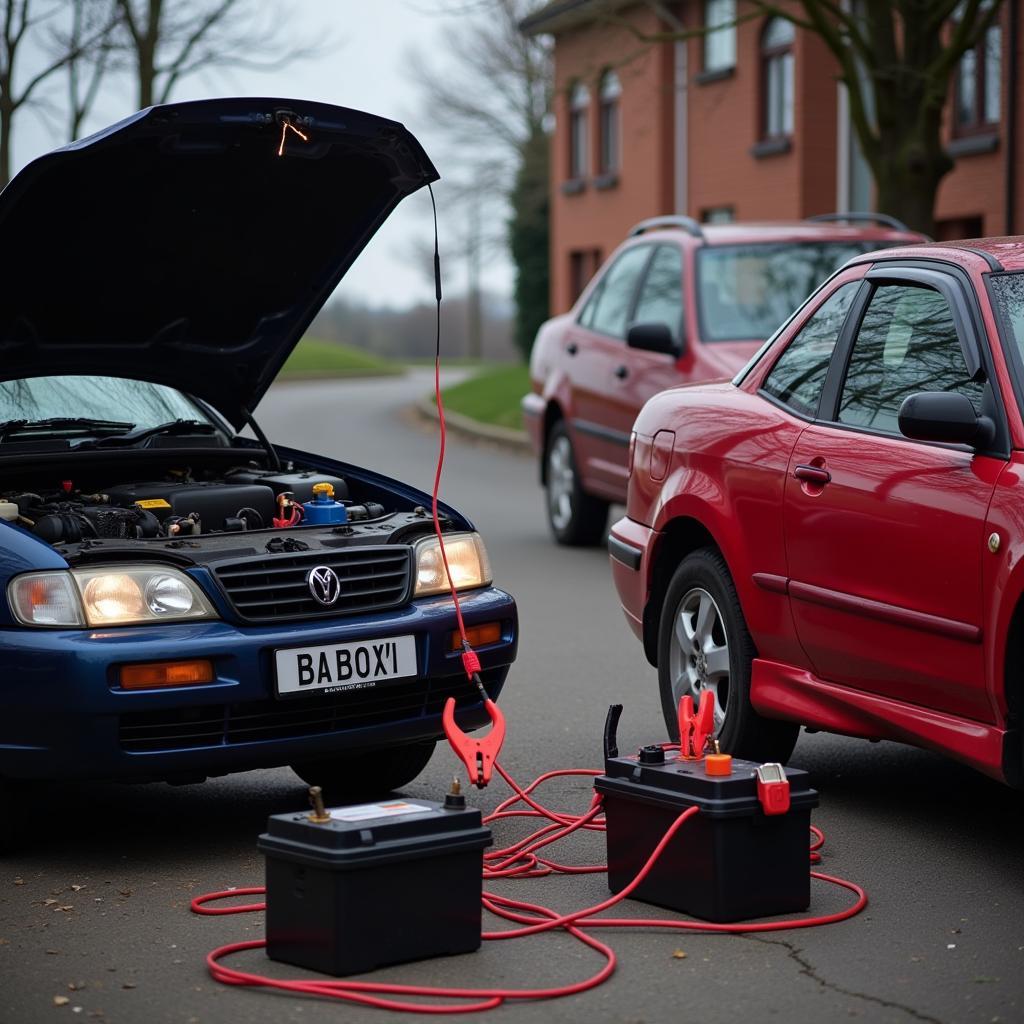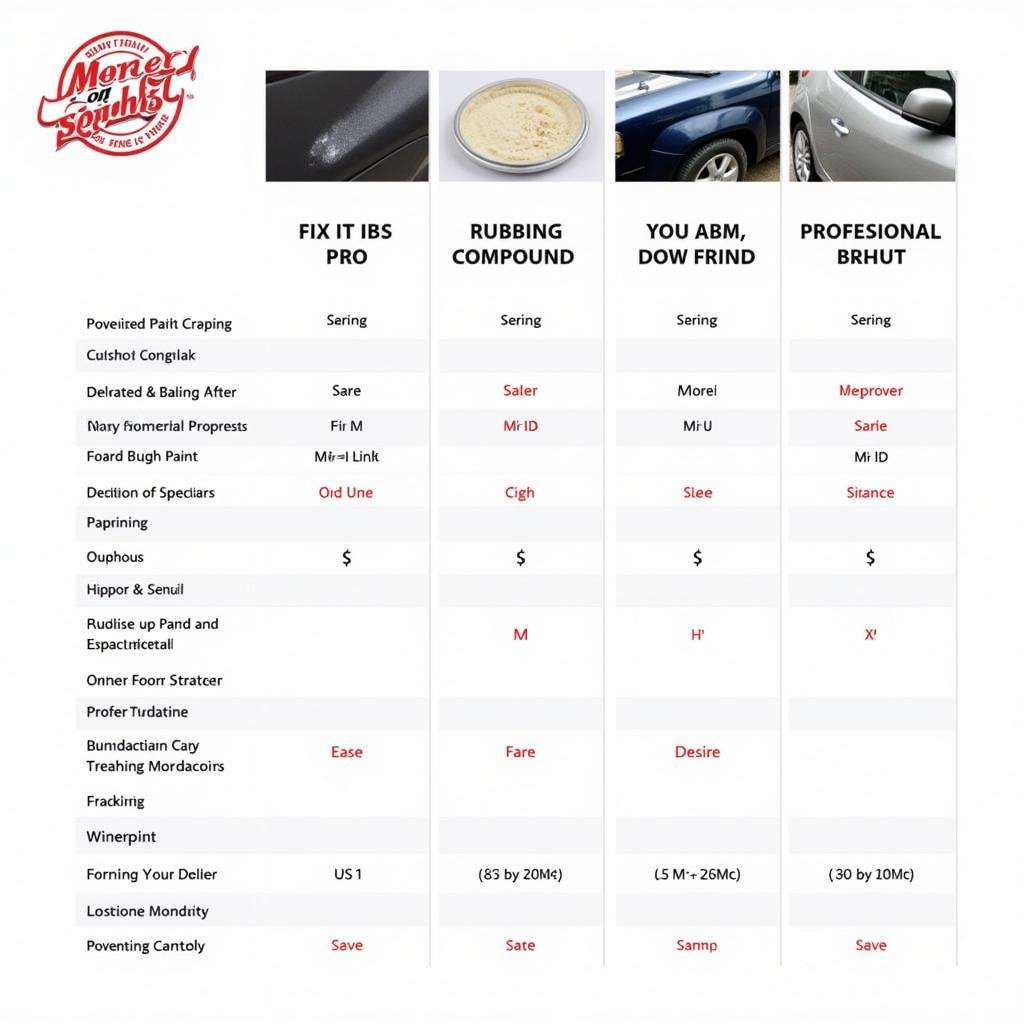Turbocharged cars offer exhilarating performance, but they also demand specific maintenance routines. Keeping your turbocharged engine in top shape requires a proactive approach. By following a few key guidelines and understanding the unique needs of a turbo system, you can enjoy the thrill of boosted power for years to come.
Understanding the Basics of Turbo Maintenance
Turbochargers work by forcing compressed air into the engine, resulting in a significant power increase. This increased airflow and higher operating temperatures demand specific attention compared to naturally aspirated engines. Ignoring these specific needs can lead to premature wear and tear, and potentially catastrophic failure. So, what extra maintenance you need with a turbo car? Let’s dive into the specifics.
 Turbocharger Diagram
Turbocharger Diagram
Regular oil changes are paramount for any engine, but especially crucial for turbocharged ones. The turbocharger’s bearings operate at incredibly high speeds and temperatures, relying on the engine oil for both lubrication and cooling. Using high-quality synthetic oil designed for turbocharged engines and adhering to the manufacturer’s recommended oil change intervals is vital. Neglecting oil changes can lead to oil coking, which restricts oil flow and can ultimately destroy the turbocharger.
The Importance of Oil and Filter Changes
Why is synthetic oil so important for turbo cars? Synthetic oils are engineered to withstand higher temperatures and maintain their viscosity under extreme conditions, offering superior protection for the turbocharger’s delicate components. Additionally, regularly replacing the oil filter ensures that contaminants are removed from the oil, further protecting the turbo. Remember, car turbo maintenance is more than just topping off fluids.
Cooling Down Your Turbo
Another critical aspect of Maintenance For A Turbo Car is allowing the turbocharger to cool down properly after spirited driving. After operating at high temperatures, the turbo needs time to cool down gradually. Idling for a minute or two after driving, especially under heavy load, allows the oil to circulate and dissipate heat from the turbocharger. Abruptly shutting off the engine immediately after hard driving can cause the remaining oil in the turbo to overheat and coke, potentially damaging the bearings.
“Letting your turbo cool down is like letting a hot pan cool before putting it in cold water. Sudden temperature changes can cause damage,” explains John Miller, a seasoned automotive engineer with over 20 years of experience.
Inspecting for Leaks and Damage
Regularly inspecting your turbocharged engine for leaks and damage is another essential part of preventative maintenance. Look for signs of oil leaks around the turbocharger and its associated piping. Also, listen for unusual noises like whistling or whining, which could indicate a problem with the turbocharger or its related components. Addressing these issues promptly can prevent more significant and costly repairs down the road. Looking for cheap turbo cars low maintenance? While some turbo cars require less maintenance than others, remember that proper care is always key to longevity.
Air Intake and Exhaust System Maintenance
A clean air intake system is crucial for optimal turbo performance. A clogged air filter restricts airflow to the turbo, reducing its efficiency and potentially causing damage. Similarly, a properly functioning exhaust system is essential for optimal turbo operation. Regularly inspect and replace the air filter and ensure the exhaust system is free of restrictions. Turbo car maintenance tips often emphasize the importance of these often overlooked components.
“Think of the air intake and exhaust system as the lungs of your turbocharged engine. Keep them clean and clear for optimal breathing and performance,” advises Sarah Chen, a leading expert in turbocharger technology.
Conclusion
Maintenance for a turbo car requires a bit more attention than a naturally aspirated engine, but the rewards of exhilarating performance are well worth the effort. By following these essential maintenance tips, including regular oil changes with high-quality synthetic oil, allowing the turbo to cool down after driving, inspecting for leaks, and maintaining the air intake and exhaust systems, you can ensure your turbocharged engine runs smoothly and reliably for years to come. What extra maintenance you need with a turbo car often boils down to being proactive and attentive to the unique needs of a turbo system. For further assistance or personalized advice on maintaining your turbo car, please connect with us at AutoTipPro. You can reach us at +1 (641) 206-8880 or visit our office at 500 N St Mary’s St, San Antonio, TX 78205, United States. We’re here to help you keep your turbo spinning smoothly! Don’t forget to check out our guide on turbo diesel car maintenance for diesel-specific advice.







Leave a Reply